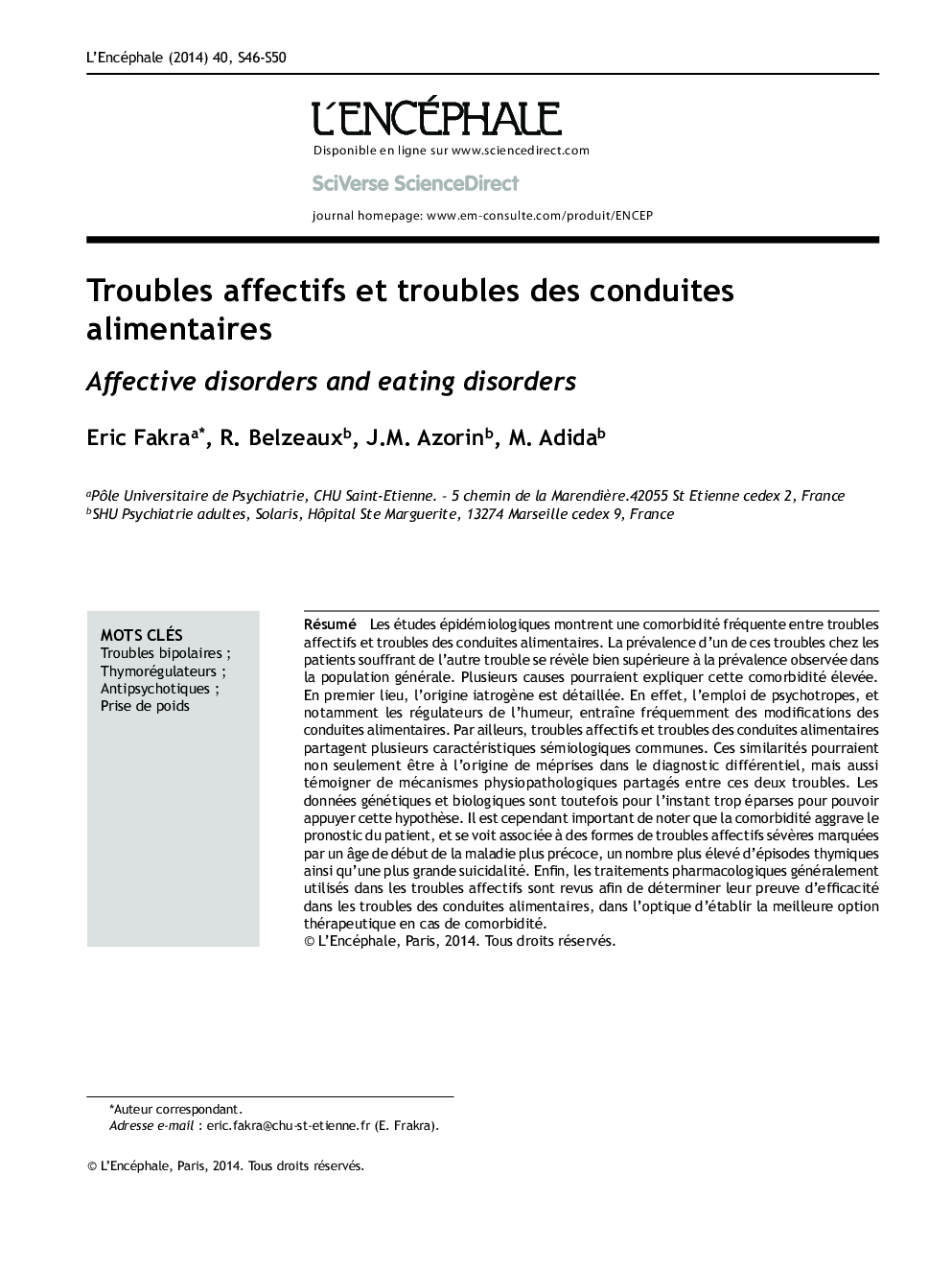| Article ID | Journal | Published Year | Pages | File Type |
|---|---|---|---|---|
| 4181715 | L'Encéphale | 2014 | 5 Pages |
Abstract
Epidemiologic studies show a frequent co-occurence of affective and eating disorders. The incidence of one disorder in patients suffering from the other disorder is well over the incidence in the general population. Several causes could explain this increased comorbidity. First, the iatrogenic origin is detailed. Indeed, psychotropic drugs, and particularly mood stabilizers, often lead to modification in eating behaviors, generally inducing weight gain. These drugs can increase desire for food, reduce baseline metabolism or decrease motor activity. Also, affective and eating disorders share several characteristics in semiology. These similarities can not only obscure the differential diagnosis but may also attest of conjoint pathophysiological bases in the two conditions. However, genetic and biological findings so far are too sparse to corroborate this last hypothesis. Nonetheless, it is noteworthy that comorbidity of affective and eating disorders worsens patients'prognosis and is associated with more severe forms of affective disorders characterized by an earlier age of onset in the disease, higher number of mood episodes and a higher suicidality. Lastly, psychotropic drugs used in affective disorders (lithium, antiepileptic mood stabilizers, atypical antipsychotics, antidepressants) are reviewed in order to weigh their efficacy in eating disorders. This could help establish the best therapeutic option when confronted to comorbidity.
Keywords
Related Topics
Health Sciences
Medicine and Dentistry
Psychiatry and Mental Health
Authors
Eric Fakra, R. Belzeaux, J.M. Azorin, M. Adida,
